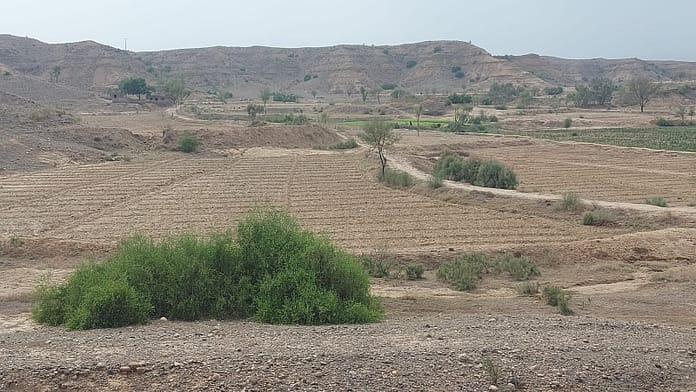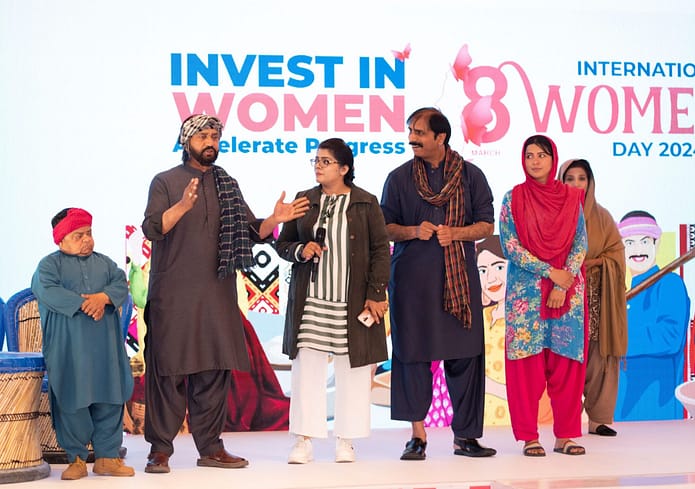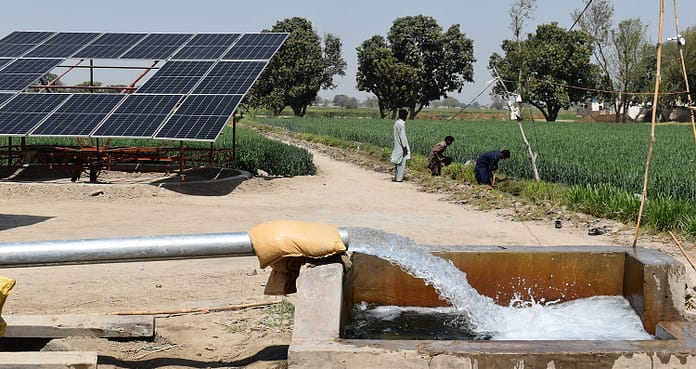Pakistan
Agriculture is the backbone of Pakistan’s economy, contributing 18.5% to its gross domestic product and employing 38.5% of the country’s labor force. Despite substantial investments, particularly in irrigation, land and water productivity is very low due to a number of factors. A massive 95% of freshwater is used for agriculture, and as much as 60% of this is lost due to inefficiency. Pakistan has the capacity to store rainwater for only 30 days during the three-month monsoon season, limiting the water supply needed for year-round irrigation. Groundwater is depleted at an alarming rate due to unsustainable use. Aging infrastructure, outdated technologies and a low level of coordination among government departments constrain efforts to establish modern agricultural systems. A major challenge is the lack of comprehensive and accurate information on the availability, storage, distribution and use of water resources at various scales.
Urbanization is taking place faster in Pakistan than anywhere else in South Asia, overloading already limited resources and services: only 20% of the population has access to safe drinking water and 40% does not have access to decent sanitation facilities. There is significant income and social inequity between men and women; the latter are mostly restricted to menial labor due to limits imposed by education and culture. Pakistan is extremely vulnerable to climate change. The country has faced catastrophic floods, droughts, cyclones and heat waves in recent years; these have killed or displaced thousands of people, destroying livelihoods and taking a heavy toll on the economy.
IWMI in Pakistan
IWMI’s work in Pakistan, which dates back to 1986, directly supports the efforts of federal ministries and provincial government departments to improve water-use efficiency and increase agricultural productivity at multiple (farm/irrigation/basin) scales in the Indus River Basin. Our priorities – elaborated with development partners and a wide range of national and provincial stakeholders – are to support the design and implementation of effective policies on water, food and climate; improve water-use efficiency and increase agricultural productivity; and build stronger water institutions at all levels. Key research areas include disaster risk monitoring and climate resilience, water resources assessment, irrigation modernization, agricultural water management and capacity building. IWMI’s strategy is centered around three strategic programs – Water, Food and Ecosystems; Water, Climate Change and Resilience; and Water, Growth and Inclusion – each supported by high-quality science and digital innovation. IWMI also supports the efforts of Pakistan to meet its targets towards achieving the Sustainable Development Goals.
Country representative
Latest Pakistan publications

2024
More... [DOI] | Fulltext (1.17 MB)

Development Studies Research, 2024
More... [DOI] | Fulltext (726 KB)

2024
More... | Fulltext (1.10 MB)

Frontiers in Water, 2024
More... [DOI] | Fulltext (1.39 MB)






